When a surname changes over the centures how should it be recorded? – WikiTree G2G
What’s an Elliott of Clan Elliot? – Gorrenberry
clan-elliot-origins-clan-crozier.pdf electricscotland
File:Sasine deed 1484 for Robert Elwald (Elliot), Redheugh, Larriston, Hartsgarth.jpg – Wikipedia
A Hawick Word Book by Douglas Scott PDF
Tullykelter-to-America
Die Riding Clans in Ulster von Robert Bell
sheep-stealers-from-the-north-of-england-the-riding-clans-in-ulster-by-robert-bell
 Brigham DNA Gorrenberry google images
Brigham DNA Gorrenberry google images
THE ANNALS OF A BORDER CLUB: GEORGE TANCRED 1899 P.149
North and south of Tweed; stories and legends of the Borders by Jeanie Lang
Gorrenberry/Goranberry is framed in green. As you can see the proposed wind farm on Hermitage Castle Hill is also on Cowie’s Gorrenberry Hill.
It should be noted in 1541 that the name of Goranberry is Archibald Elwald, and Andrew (Dand) Elwald of Braidlie, common for these regions, but name became Ellot (Elliot).
The Elwald which are lawis (meaning of the hill) are shown to live as Elwald meaning people of small forest or foresta/forest-stead are living on the hill and in 1376 basically the same names are given for the forested treed regions. This is felt to be cowie’s and my family living in the region of lawis (on the hill). So it is said; NO MILL ON HILL
MSE 2/6/2014
Definition of Cow/Kow/Cowie, by DSL; Dictionary of the Scottish Language.
Where it is felt the origins of Gorrenberry may be from;
THE COWIE OF GORANBERRY The days of the fairy folk are past. No longer can we see the little figures in green slipping behind the trees when we go to pick primroses in the woods. No more does the will-o’-the-wisp beguile us as we ride through the moors of bog, myrtle, and peat when the sun has fallen and before the moon has come up. There is no longer a meal left out for the Brownie at night, nor do we deck our lintels with rowan sprigs to keep tricksy spirits away. The Little People have sailed far across the sea to a land we do not know. The worthy Presbyterians who warred against witchcraft swept many away. The Board Schools are responsible for most of the rest. All through the years the children would have saved them if they could. They would save them even now, though it means a harder struggle as the years go on. But we are too scientific, too commonsensical, to permit it. “When I was a little girl I believed in fairies,” says the child of nine. How many of her listeners applaud her growing sense ? How few sigh for the loss of which she is still most innocently unconscious?
In the olden days, Goranberry Tower, near the source of the Hermitage Water, and about two miles above Hermitage Castle, was the chosen home of one of the Little People. Some of the Elliot clan lived there then, and to the Brownie who had claimed their hospitality they gave the name of ” The Cowie.” ** The Cowie of Goranberry ” was no useless spirit, satisfied to expend its energy on meaningless tappings and scrapings, or to keep its hosts in a proper condition of respect by sighs and moans and heavy foot-steps as they lay in bed. A thoroughly practical, hard-working, capable Brownie was the Cowie of Goranberry. That it had the good of the Elliots warmly at heart was unquestionable. Who carted in all the peats and safely stacked them one night when at daybreak the snow was drifting down in that terrible storm that lasted for a week on end ? Who sheared the last little field of oats, acted as his own bandster, and stacked it safely before the autumn spates could harm it ? Who sheared the sheep just when they wanted it, and when the goodman of Goranberry was unexpectedly detained on the other side of the Border on pressing business connected with some English cattle ? Who chopped firewood for the goodwife? Who ground the quern so that in the morning the bairns found abundance of fresh oatmeal for their porridge? Who but the Cowie of Goranberry.
In a hundred different ways did he help on the work of the household and of the farm, and yet the grateful family never once saw their friend. Often at night they would hear him at work — chopping wood, sawing, spinning or rolling yarn, grinding the handmill. But they would only contentedly say to each other, “The Cowie is having a busy nicht,” and go to sleep again, knowing that they would find the work well done in the morning. To only one sound that the Cowie made did they object, and yet the family took a kind of mournful pride in a thing that so distinguished them from common people. Always as Death, was about to stretch out his hand and take hold of one of the Elliots, the event was foretokened by the sound of bitter weeping from the Cowie of Goranberry. Many a year came and went, one Elliot made room for another — still at the old Tower up Hermitage Water the Cowie held his sway.
But there came an autumn, when Adam Elliot, the last of his family, was laird of Goranberry, that black depression seemed to have fallen upon the Cowie. When the moonlight harvest nights were past, all through the long nights of October, and in the blacker ones in the early part of November, the Cowie did not cease to make his moan. Eerie it was for all who served there, eerie for those who rode that way at night, for the laments were those of a beast that had lost her young and yet had all the human pitifulness of the wail of a woman whose heart is broken. Only one of those who listened hugged to a wicked heart the thought of what the waiUngs betokened. Many a time had Adam Elliotts false wife prayed for “a dark nicht and a toom saddle” when her husband rode abroad, and it seemed now as if her prayers were about to be answered.
It was a bright November day with sun on the hills and on the still red bracken when the laird rode off to the Martinmas Hiring Fair at Copshawholm, but it was told afterwards by those who watched him ride away, that even in the morning sunshine they could hear that piteous wail that all knew for the lament of the Cowie of Goranberry.
The bright morning ended in a stormy day, and already all the Border streams were flooded when Elliot took his homeward way across the moors in the darkening. All through that night his servants vainly and in dismal apprehension awaited his return. With every decorous semblance of anxiety his wife also kept vigil. The sleet was driven in fierce blatters against the Tower, and the flooded Hermitage Water moaned aloud, but ever above the howling gale and the thousand angry noises of the night the bitter moaning of the Cowie made itself heard. Then at length in a lull in the storm the watchers heard the whinny of a horse and the sound of hoofs on the causeway in front of the Tower. Gladly did the servants run to open the door for their master, while the heart of the woman, who had hoped for what she dared not name, sank within her. But the horse was riderless, and they could see that the water that dripped from its saddle came not only from the drift of the rain. It was a wild night indeed, a night no serving-man or woman there ever forgot, for through the storm the dismal keening of the Cowie sounded like the cry of a lost soul, and made even the most hardened horse-couping Borderer there, kneel and pray, while his eyes were wet with pity for something more piteous than he had ever known that the world could contain.
In the grey drizzle of the next morning they found Adam Elliot. He was sitting with his back against the wall of Hermitage burying-ground, his cloak about him, drenched through, stiff and dead. He had been swept from his horse as he forded the flooded stream, but had managed to struggle out of the water and had crept to the bield of the kirkyard wall, hoping to find shelter there.
That was the end of Adam Elliot, and that also was the last of the Cowie of Goranberry. As day dawned one of the watching women said she heard it give a last cry, like that of a little whimpering, new-born babe ; then all was silence, and the place that had known it knew it no more.
The days of the fairy folk are past. No longer can we see the little figures in green slipping behind the trees when we go to pick primroses in the woods. No more does the will-o’-the-wisp beguile us as we ride through the moors of bog, myrtle, and peat when the sun has fallen and before the moon has come up. There is no longer a meal left out for the Brownie at night, nor do we deck our lintels with rowan sprigs to keep tricksy spirits away. The Little People have sailed far across the sea to a land we do not know.
The worthy Presbyterians who warred against witchcraft swept many away. The Board Schools are responsible for most of the rest. All through the years the children would have saved them if they could. They would save them even now, though it means a harder struggle as the years go on. But we are too scientific, too commonsensical, to permit it. “When I was a little girl I believed in fairies,” says the child of nine. How many of her listeners applaud her growing sense ? How few sigh for the loss of which she is still most innocently unconscious?
In the olden days, Goranberry Tower, near the source of the Hermitage Water, and about two miles above Hermitage Castle, was the chosen home of one of the Little People. Some of the Elliot clan lived there then, and to the Brownie who had claimed their hospitality they gave the name of ” The Cowie.” ** The Cowie of Goranberry ” was no useless spirit, satisfied to expend its energy on meaningless tappings and scrapings, or to keep its hosts in a proper condition of respect by sighs and moans and heavy foot-steps as they lay in bed. A thoroughly practical, hard-working, capable Brownie was the Cowie of Goranberry. That it had the good of the Elliots warmly at heart was unquestionable. Who carted in all the peats and safely stacked them one night when at daybreak the snow was drifting down in that terrible storm that lasted for a week on end ? Who sheared the last little field of oats, acted as his own bandster, and stacked it safely before the autumn spates could harm it ? Who sheared the sheep just when they wanted it, and when the goodman of Goranberry was unexpectedly detained on the other side of the Border on pressing business connected with some English cattle ? Who chopped firewood for the goodwife? Who ground the quern so that in the morning the bairns found abundance of fresh oatmeal for their porridge? Who but the Cowie of Goranberry.
In a hundred different ways did he help on the work of the household and of the farm, and yet the grateful family never once saw their friend. Often at night they would hear him at work — chopping wood, sawing, spinning or rolling yarn, grinding the handmill. But they would only contentedly say to each other, “The Cowie is having a busy nicht,” and go to sleep again, knowing that they would find the work well done in the morning. To only one sound that the Cowie made did they object, and yet the family took a kind of mournful pride in a thing that so distinguished them from common people. Always as Death, was about to stretch out his hand and take hold of one of the Elliots, the event was foretokened by the sound of bitter weeping from the Cowie of Goranberry. Many a year came and went, one Elliot made room for another — still at the old Tower up Hermitage Water the Cowie held his sway.
But there came an autumn, when Adam Elliot, the last of his family, was laird of Goranberry, that black depression seemed to have fallen upon the Cowie. When the moonlight harvest nights were past, all through the long nights of October, and in the blacker ones in the early part of November, the Cowie did not cease to make his moan. Eerie it was for all who served there, eerie for those who rode that way at night, for the laments were those of a beast that had lost her young and yet had all the human pitifulness of the wail of a woman whose heart is broken. Only one of those who listened hugged to a wicked heart the thought of what the wailings betokened. Many a time had Adam Elliotts false wife prayed for “a dark nicht and a toom saddle” when her husband rode abroad, and it seemed now as if her prayers were about to be answered.
Save Hermitage Castle’s Iconic Landscape
http://www.armstrongclan.org.uk/pdfs/HAG.pdf
Gorrenberry Estate 2011-

THE DOOR, LARRISTON
Lock the door, Larriston, Lion of Liddesdale;
Lock the door, Larriston, Lowther comes on;
The Armstrongs are flying,…..
……..
I’ve Mangerton, Gorranberry, Raeburn, and Netherby,
Old Sim of Whitram,and all his array;..
In 1484 and 1489, Willielmo Elwaldo (ie William Elwald/Elliot), was at the chief Robert Elwald (ie Elliot) receiving the land of Redheugh, Lariston and others. In 1607, my line of Gorrenberry, was banished from both kingdoms, living on land of the Hamilton-Somerville Family related to Robert of Redheugh-Lariston, in Fermanagh, Ulster, Ireland.
Buccleuch rejected Redheugh-Lariston’s ownership of the property over protest of William Ellot of Gorrenberry, William Ellot of Prickenhaugh, Robert Ellot of Braidlie and others. Robert of Redheugh living on his lands in Lariston, across from Prickenhaugh, lost these lands, to the Bauld Buccleuch, though he was properly infeft with them. Though the Prickenhaugh, Braidlie, Copshaw line of Ellot were exterminated as a part of Border Pacification-Genocide, along with the Armstrong; others and those of Gorrenberry, exist with our R-U106 Y-DNA live in what is now the USA. The family which took our lands and made a Barony of Gorrenberry of the lands of Gorrenberry, and Braidley. I wonder who they could be?
Martin Ellot was living of the Braidlie, but William Ellot was of Gorrenberry.
5/6/2018 MSE
http://www.gorrenberry.org.uk/
Scions of the Elliots and the Scotts lived at various times here. The Brownie of Goranberry, a helpful supernatural being which cleaned the building nightly, was reputed to live in the tower with one of the Elliots.
The history of the Hermitage Valley is very much tied up with that of Hermitage Castle which lies to the east of Gorrenberry. The history of this important national monument and the lands around it have been reported in a fascinating monograph by Professor Richard Oram of Stirling University (Report of Hermitage Castle).
http://www.gorrenberry.org.uk/history.html
5/11/2018 MSE
http://gorrenberry.com/muirhall-castle-hermitage-wind-farm/
Mark Elliott 10/12/2013
Another Cowie, basically the same;
From the Border Magazine…
added 10/15/2013
Cowie-Brownie and Elf;
Orkney, and Icelandic; felt to be Viking-Nordic-Scandinavian.
Saxon could be Anglo-Saxon Northern Germany or Southern Denmark, felt to be at the region which my family came from to go to southern Northumbria, making them likely Anglo of Saxony area.
Basic name progression from Elfwald to Elwald to Ellot to Elliot to Elliott.
Mark Elliott 10/15/2013
Suspected someone who could be the first Cowie, included in the following;
Mark Elliott 10/24/2013
Another version of Cowie of Goranberry;
NORTH AND SOUTH OF TWEED
STORIES AND LEGENDS OF
THE BORDERS BY JEAN LANG AUTHOR OP "A LAND OP ROMANCE LONDON: T. C. & E. C. JACK 67 LONG ACRE, W.C, AND EDINBURGH 1913
THE COWIE OF GORANBERRY
The days of the fairy folk are past. No longer can
we see the little figures in green slipping behind the
trees when we go to pick primroses in the woods.
No more does the will-o’-the-wisp beguile us as we
ride through the moors of bog, myrtle, and peat when
the sun has fallen and before the moon has come up.
There is no longer a meal left out for the Brownie at
night, nor do we deck our lintels with rowan sprigs
to keep tricksy spirits away. The Little People have
sailed far across the sea to a land we do not know.
The worthy Presbyterians who warred against witch-
craft swept many away. The Board Schools are
responsible for most of the rest. All through the
years the children would have saved them if they
could. They would save them even now, though it
means a harder struggle as the years go on. But we
are too scientific, too commonsensical, to permit it.
” When I was a little girl I believed in fairies,” says
the child of nine. How many of her listeners
applaud her growing sense ? How few sigh for the
loss of which she is still most innocently un-
conscious ?
In the olden days, Goranberry Tower, near the
156
THE COWIE OF GORANBERRY
source of the Hermitage Water, and about two miles
above Hermitage Castle, was the chosen home of
one of the Little People. Some of the Elliot clan
lived there then, and to the Brownie who had claimed
their hospitality they gave the name of ” The Cowie.”
** The Cowie of Goranberry ” was no useless spirit,
satisfied to expend its energy on meaningless tappings
and scrapings, or to keep its hosts in a proper con-
dition of respect by sighs and moans and heavy foot-
steps as they lay in bed. A thoroughly practical,
hard-working, capable Brownie was the Cowie of
Goranberry. That it had the good of the Elliots
warmly at heart was unquestionable. Who carted
in all the peats and safely stacked them one night
when at daybreak the snow was drifting down in
that terrible storm that lasted for a week on end ?
Who sheared the last little field of oats, acted as his
own bandster, and stacked it safely before the autumn
spates could harm it ? Who sheared the sheep just
when they wanted it, and when the goodman of
Goranberry was unexpectedly detained on the other
side of the Border on pressing business connected
with some English cattle ? Who chopped firewood
for the goodwife ? Who ground the quern so that
in the morning the bairns found abundance of fresh
oatmeal for their porridge? Who but the Cowie
of Goranberry.
In a hundred different ways did he help on the
work of the household and of the farm, and yet the
157
NORTH AND SOUTH OF TWEED
grateful family never once saw their friend. Often
at night they would hear him at work — chopping
wood, sawing, spinning or rolling yarn, grinding the
handmill. But they would only contentedly say to
each other, “The Cowie is having a busy nicht,”
and go to sleep again, knowing that they would find
the work well done in the morning. To only one
sound that the Cowie made did they object, and yet
the family took a kind of mournful pride in a thing
that so distinguished them from common people.
Always as Death, was about to stretch out his hand
and take hold of one of the Elliots, the event was
foretokened by the sound of bitter weeping from the
Cowie of Goranberry. Many a year came and went,
one Elliot made room for another — still at the old
Tower up Hermitage Water the Cowie held his
sway.
But there came an autumn, when Adam Elliot,
the last of his family, was laird of Goranberry, that
black depression seemed to have fallen upon the
Cowie. When the moonlight harvest nights were
past, all through the long nights of October, and
in the blacker ones in the early part of November,
the Cowie did not cease to make his moan. Eerie
it was for all who served there, eerie for those who
rode that way at night, for the laments were those
of a beast that had lost her young and yet had all
the human pitifulness of the wail of a woman whose
heart is broken. Only one of those who listened
158
THE COWIE OF GORANBERRY
hugged to a wicked heart the thought of what the
waiUngs betokened. Many a time had Adam Elliotts
false wife prayed for “a dark nicht and a toom
saddle” when her husband rode abroad, and it
seemed now as if her prayers were about to be
answered.
It was a bright November day with sun on the
hills and on the still red bracken when the laird rode
off to the Martinmas Hiring Fair at Copshawholm,
but it was told afterwards by those who watched
him ride away, that even in the morning sunshine
they could hear that piteous wail that all knew
for the lament of the Cowie of Goranberry.
The bright morning ended in a stormy day, and
already all the Border streams were flooded when
Elliot took his homeward way across the moors
in the darkening. All through that night his
servants vainly and in dismal apprehension awaited
his return. With every decorous semblance of
anxiety his wife also kept vigil. The sleet was
driven in fierce blatters against the Tower, and the
flooded Hermitage Water moaned aloud, but ever
above the howling gale and the thousand angry
noises of the night the bitter moaning of the Cowie
made itself heard. Then at length in a lull in the
storm the watchers heard the whinny of a horse
and the sound of hoofs on the causeway in front
of the Tower. Gladly did the servants run to open
the door for their master, while the heart of the
159
NORTH AND SOUTH OF TWEED
woman, who had hoped for what she dared not name,
sank within her. But the horse was riderless, and
they could see that the water that dripped from
its saddle came not only from the drift of the rain.
It was a wild night indeed, a night no serving-man
or woman there ever forgot, for through the storm
the dismal keening of the Cowie sounded like the
cry of a lost soul, and made even the most hardened
horse-couping Borderer there, kneel and pray, while
his eyes were wet with pity for something more
piteous than he had ever known that the world
could contain.
In the grey drizzle of the next morning they
found Adam Elliot. He was sitting with his back
against the wall of Hermitage burying-ground, his
cloak about him, drenched through, stiff and dead.
He had been swept from his horse as he forded
the flooded stream, but had managed to struggle
out of the water and had crept to the bield of the
kirkyard wall, hoping to find shelter there.
That was the end of Adam Elliot, and that also
was the last of the Cowie of Goranberry. As day
dawned one of the watching women said she heard
it give a last cry, like that of a little whimpering,
new-born babe ; then all was silence, and the place
that had known it knew it no more.
16o
added 11/24/2013
More on Gorrenberry by;
A Hawick Word Book
Douglas Scott
[DRAFT – version of 19 February 2014]
MSE 2/26/2014
Addition;
It is suspected that the first cowie was a fugitive harbored by the Buccleuch family at Baillillie on Scott land to the north Andrew (Dand), and he would come down to Gorrenberry to visit his younger brother Archie Kene (the wise highly literate), and his son Clementis Hob (Clement Crosar of Stobs nephew Robert Elwald/Ellot). Clementis Hob had an older brother Andrew (Dand) the Cow first son named after his father who became the Baillee (legal administrator) of Selfkirk.
It is from this Dand the step cousin from the old brother where it is felt the namd Gib Ellot called Dand’s Gib comes from.
Gib is of course born of Redheugh, and becomes Gilbert of Stobs stepson to Gavin of Stobs, and married into the Buccleuch family.
Mark Elliott 2/28/2014
It is felt that Robert-Redheugh, Archibald-Gorrenberry, and William-Larriston, had a certain level of literacy, and represented their localities in 1548, and were allied in the Crosar (Crozier), which was imprison as bond, to the Kerr castle of Fernihirst.
MSE 4/27/2014
Braidley, MacPatrikhope, and the Gorrenberry, Elwald are of the Gorrenberry Estate and lived in the region of the Proposed, Infinis, Windy Edge wind farm, the Braidlie proportion which is still being proposed.
MSE 6/29/2015
PEACE ON THE BORDER
9/15/2018 MSE
10/8/2018 MSE

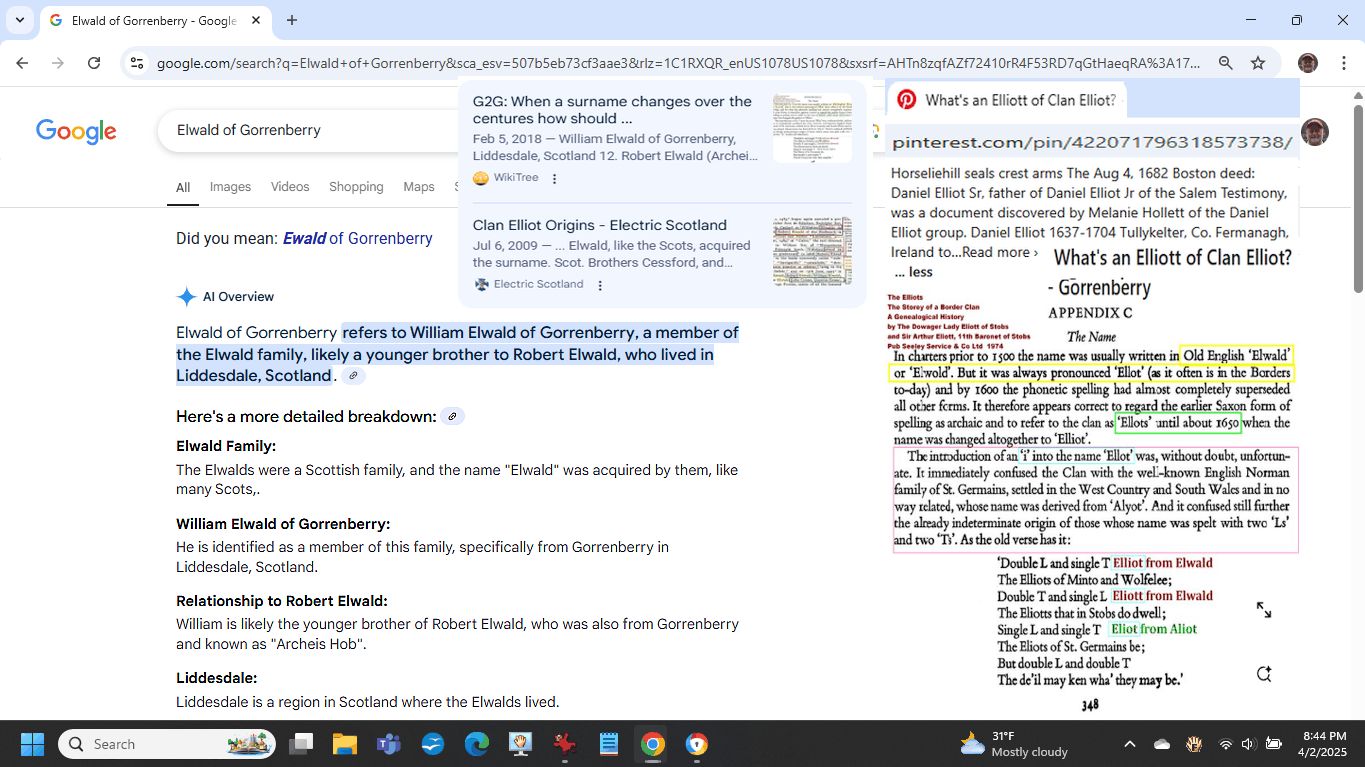
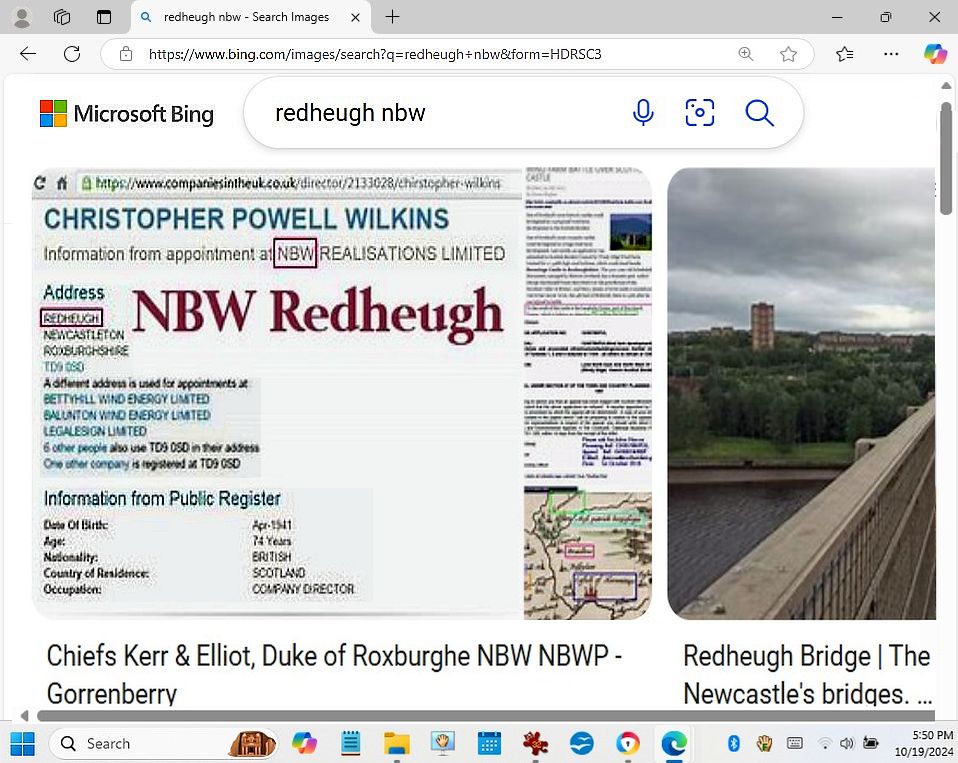
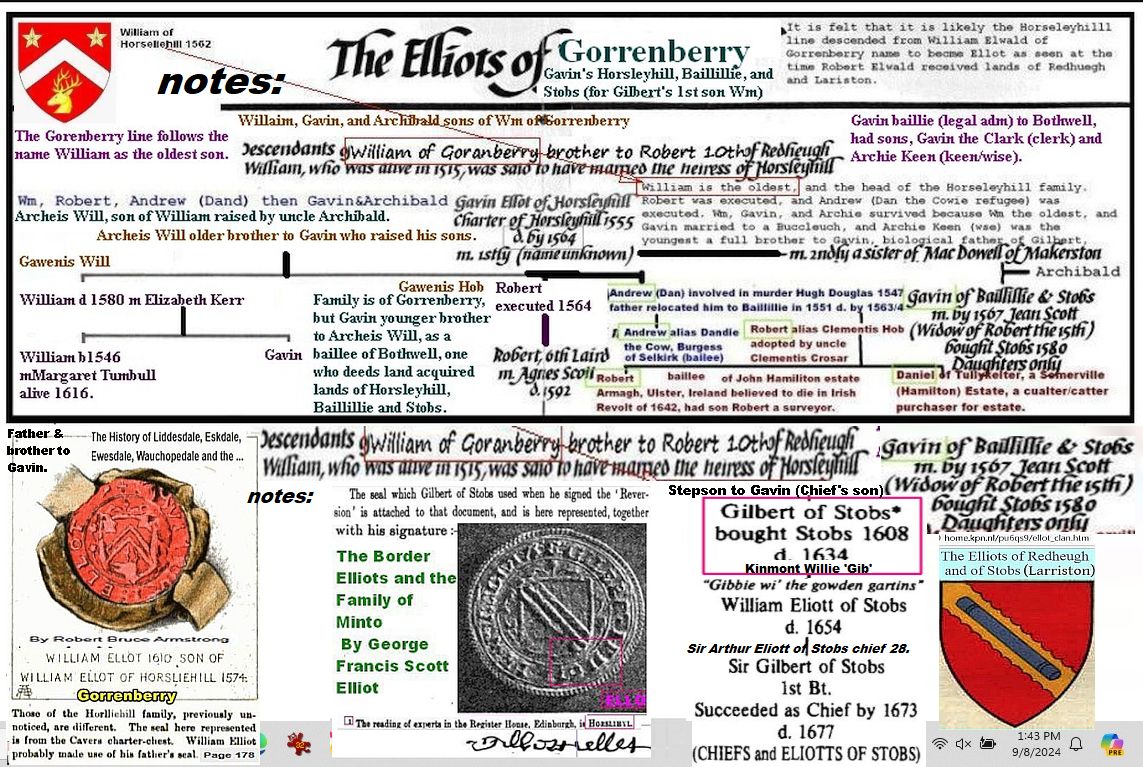
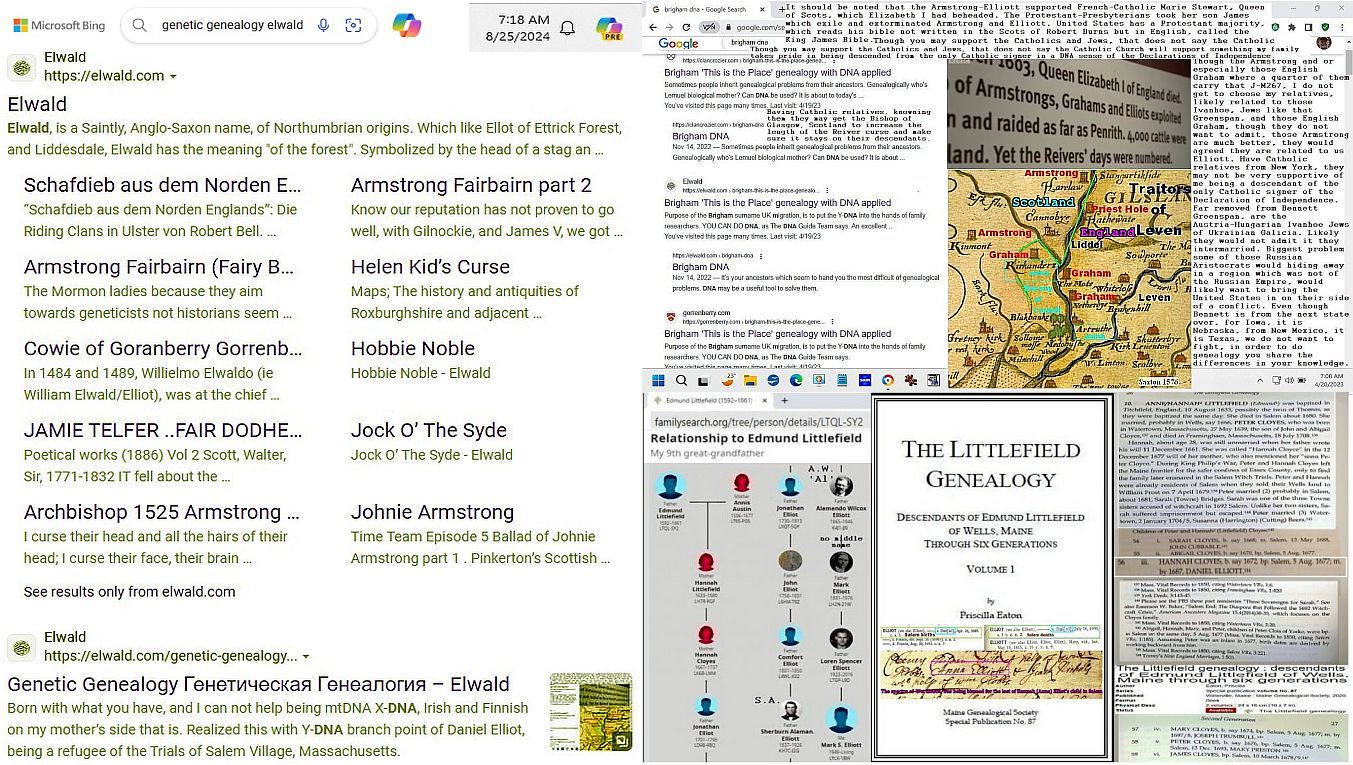
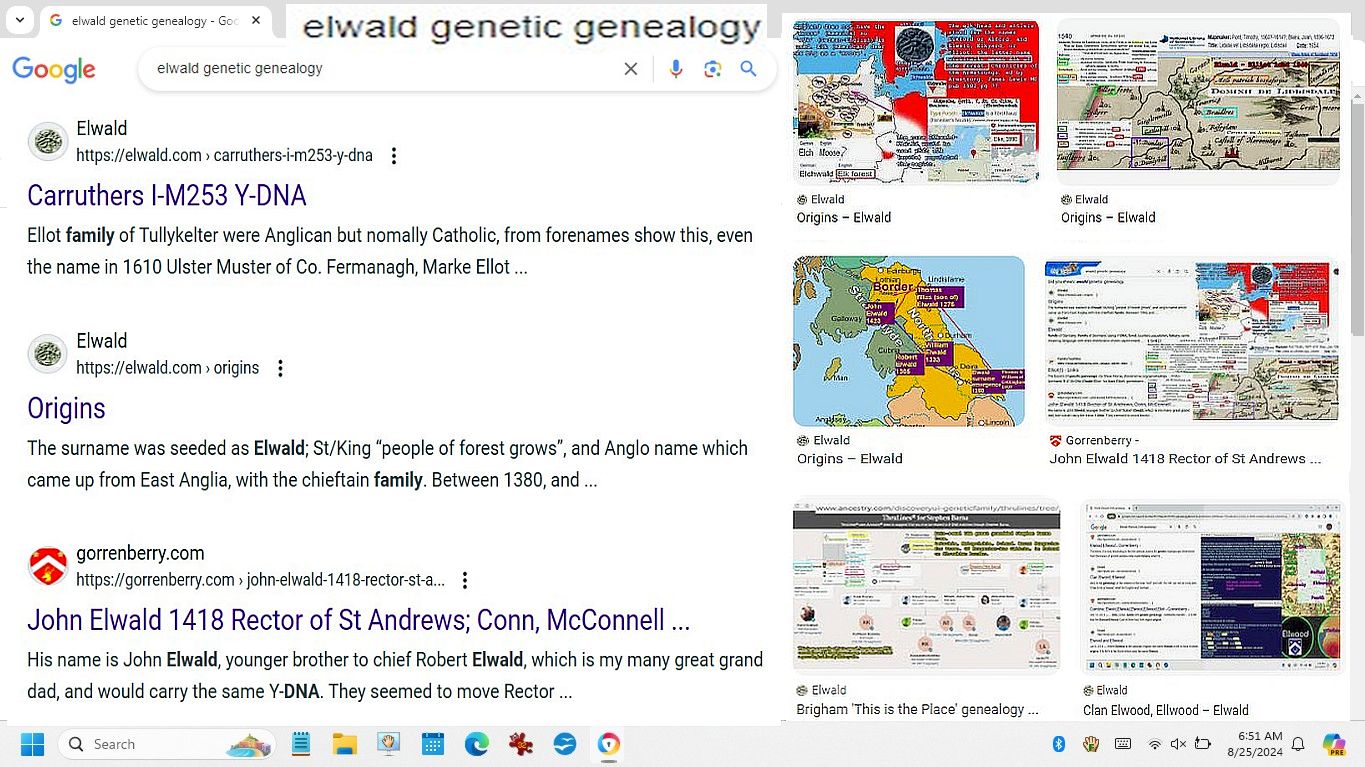
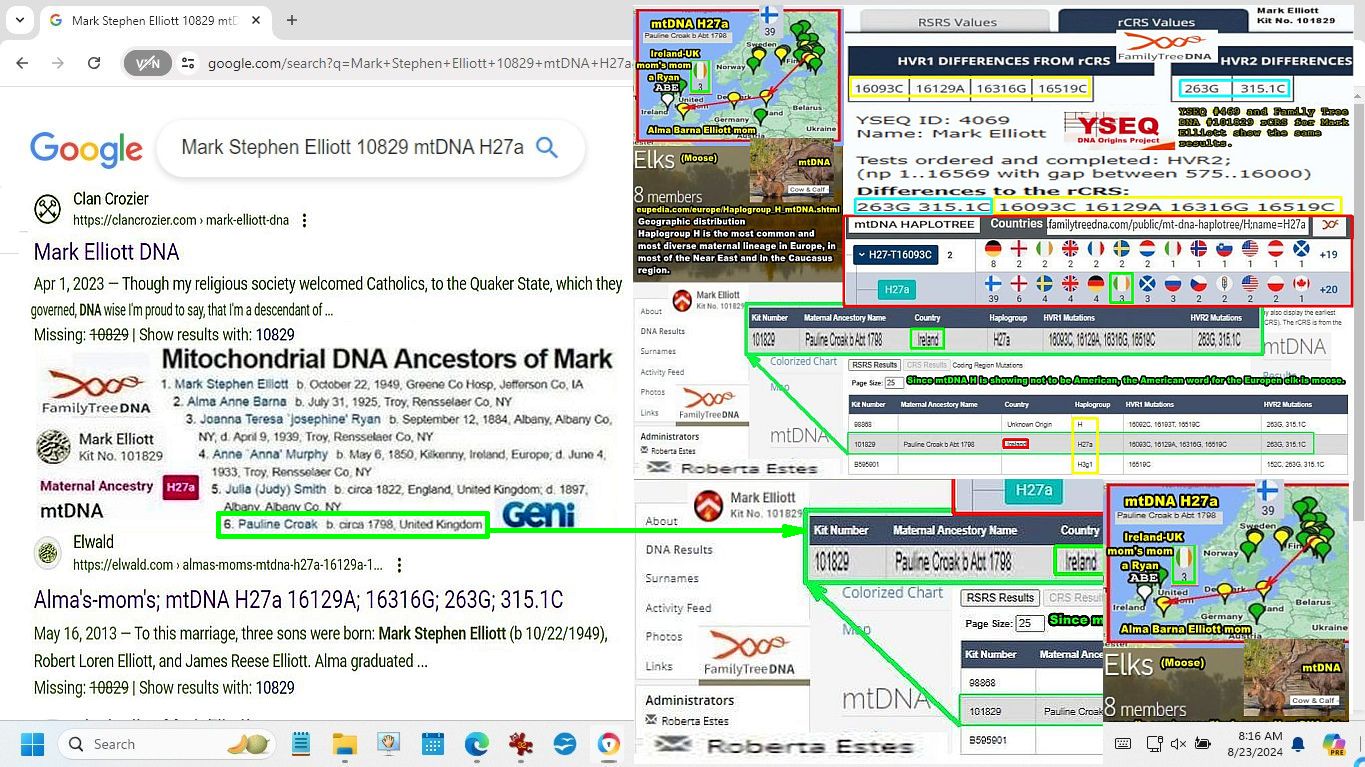
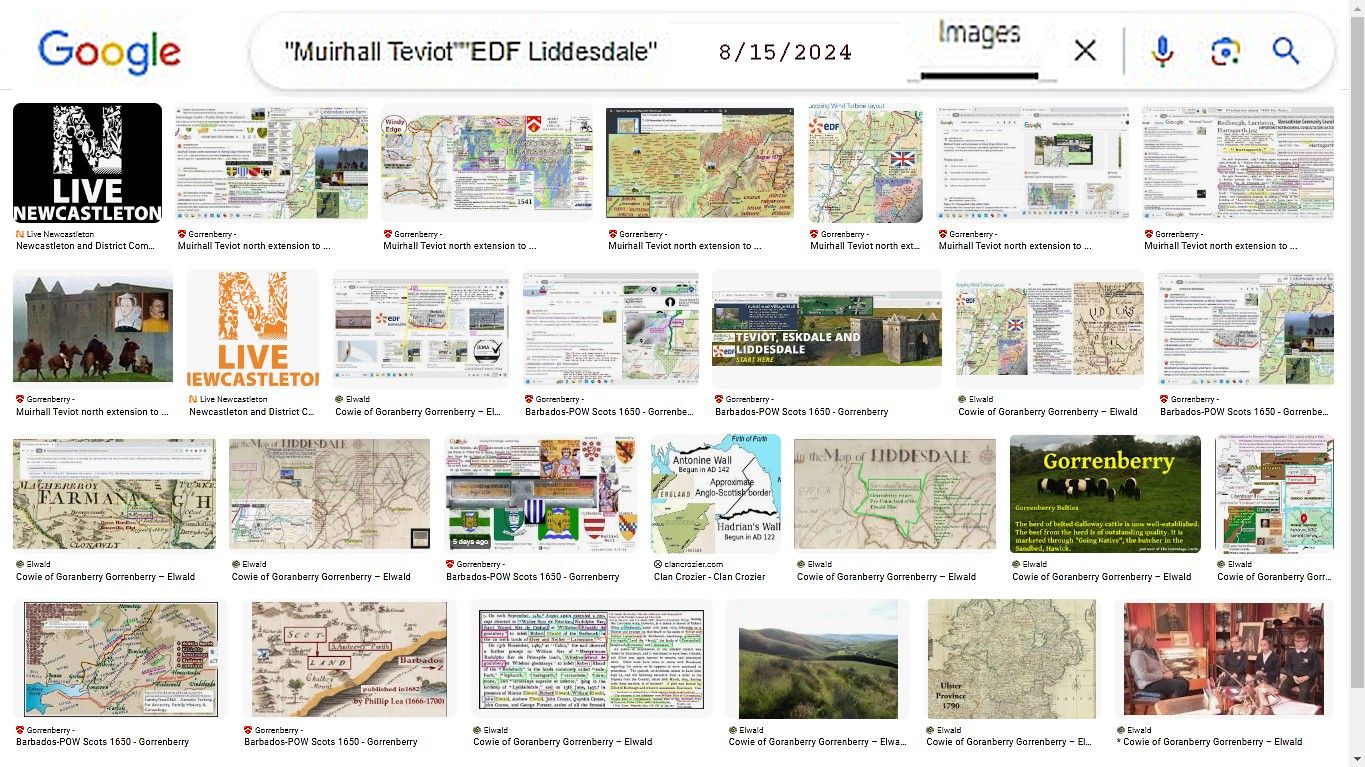
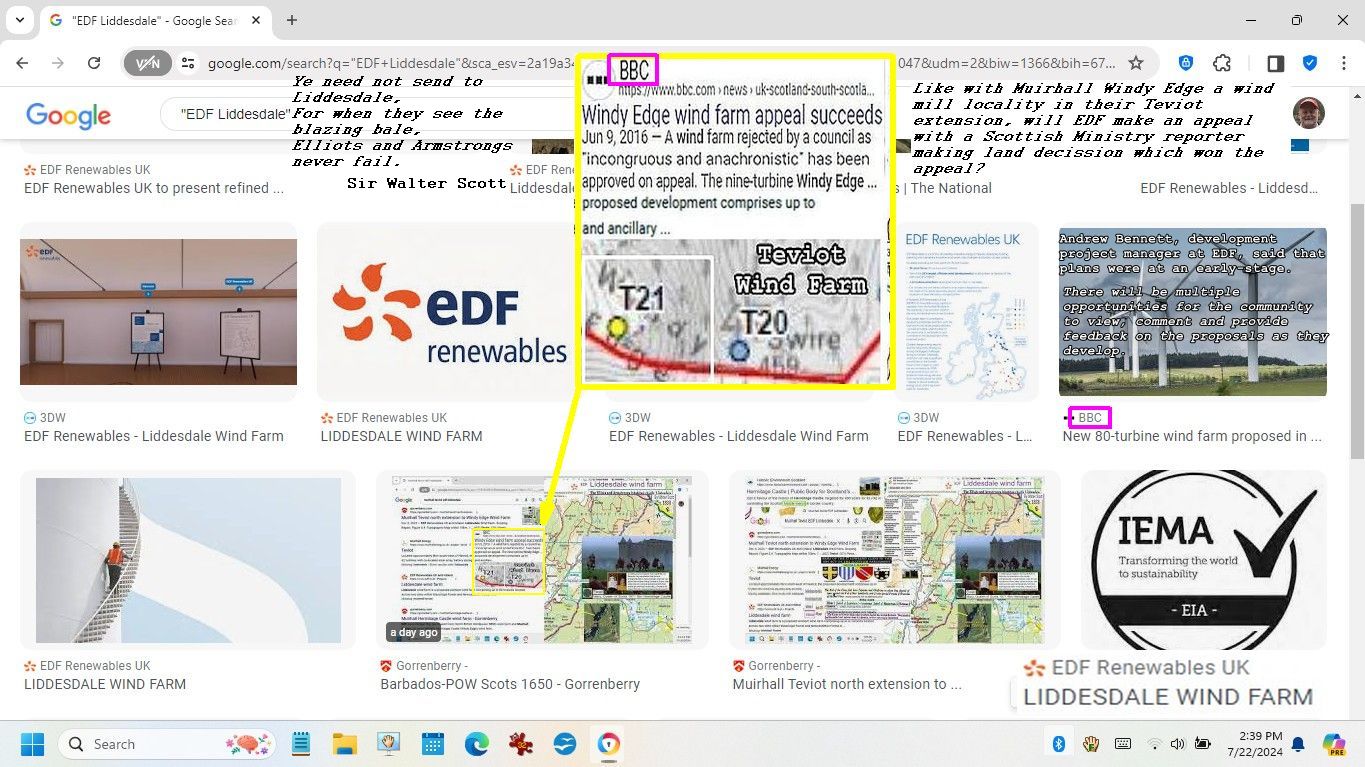
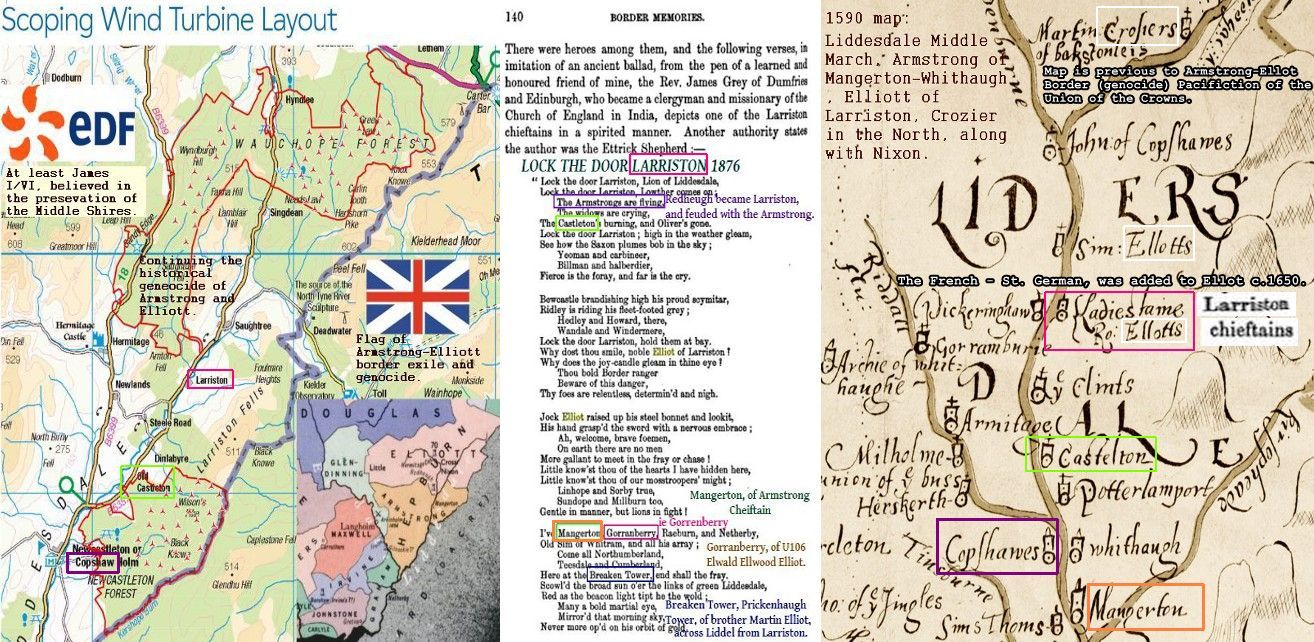
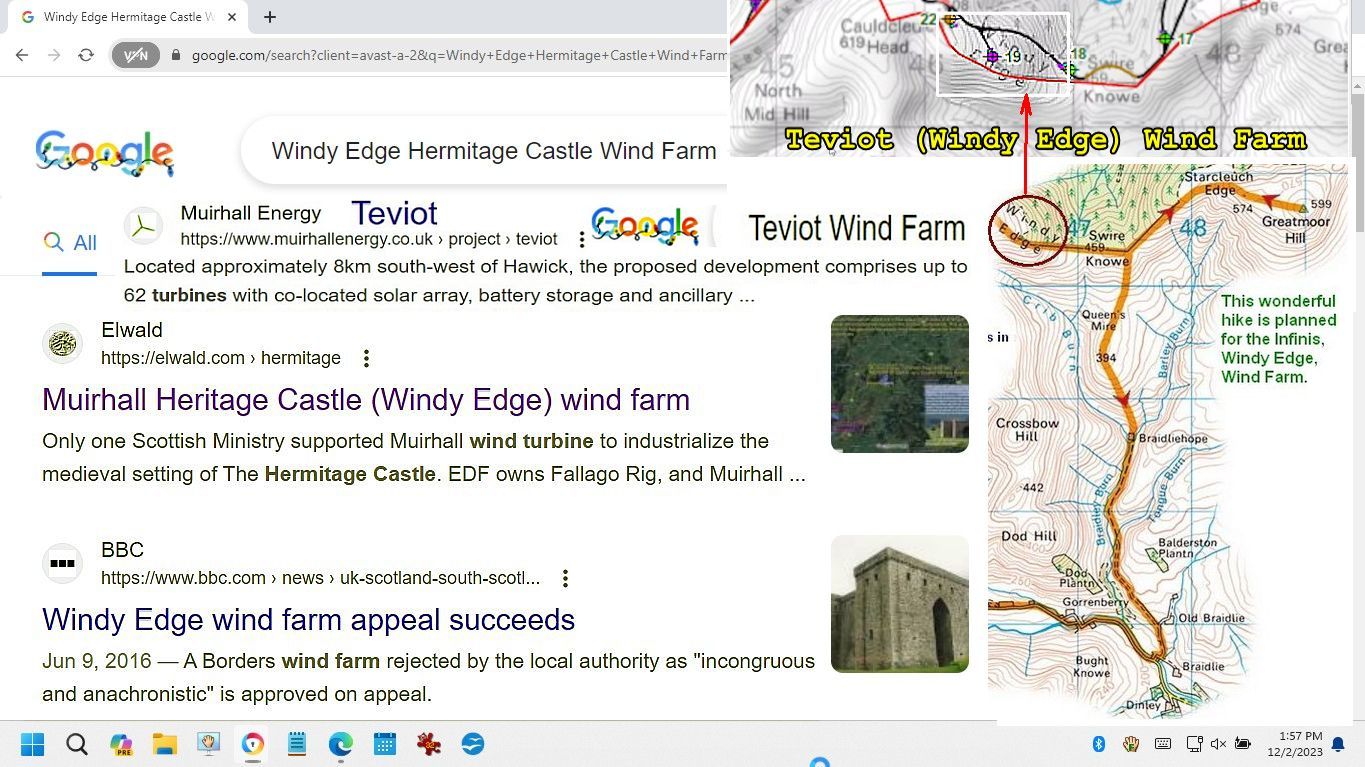

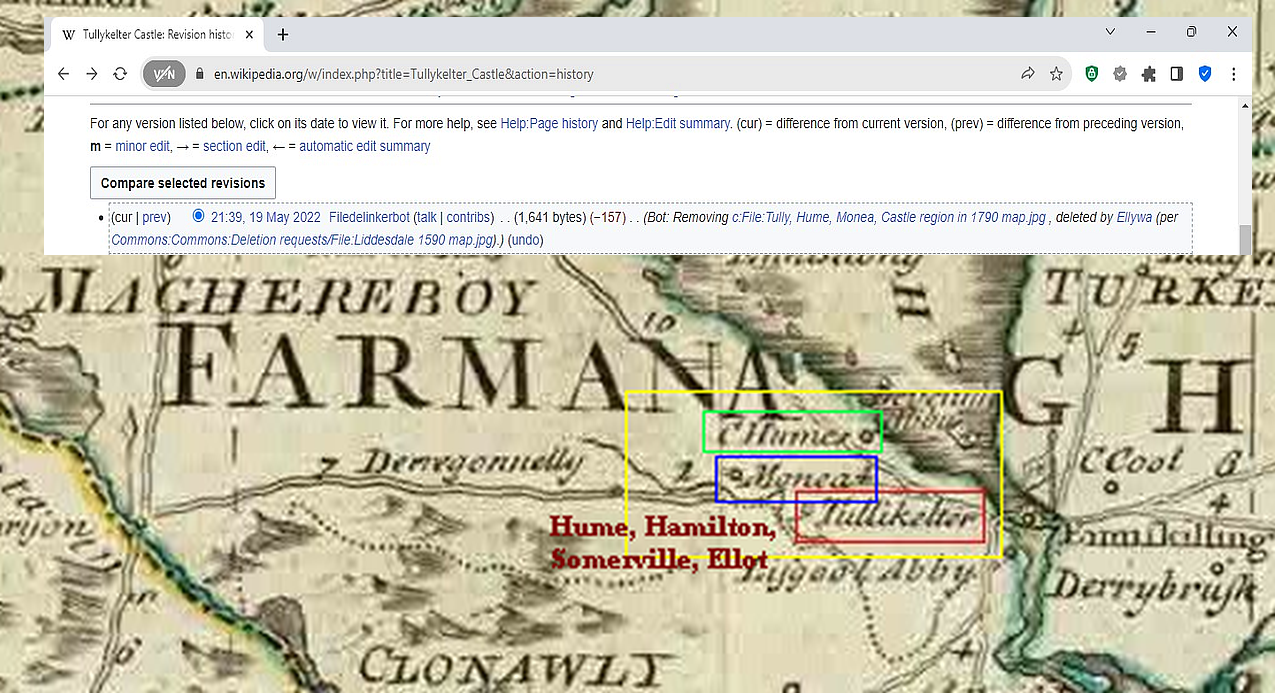
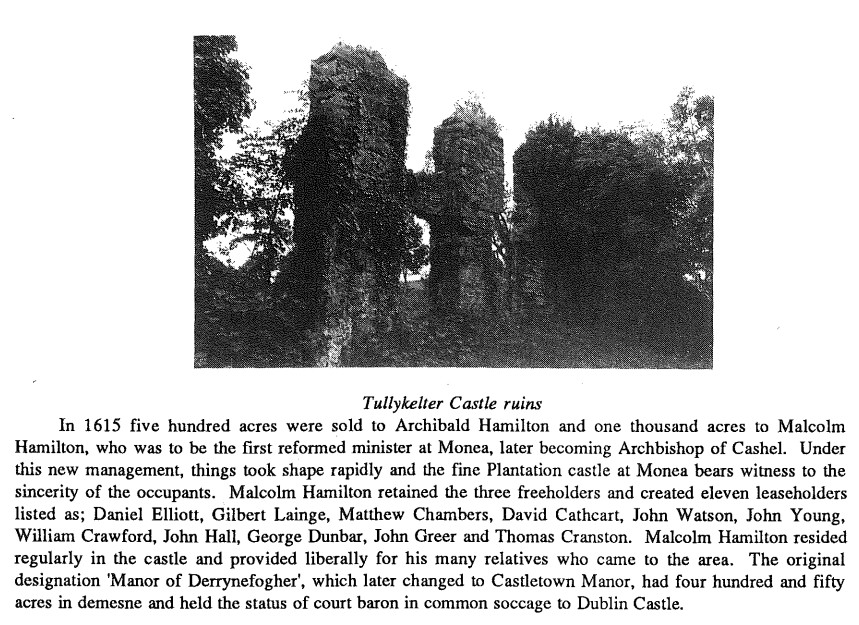
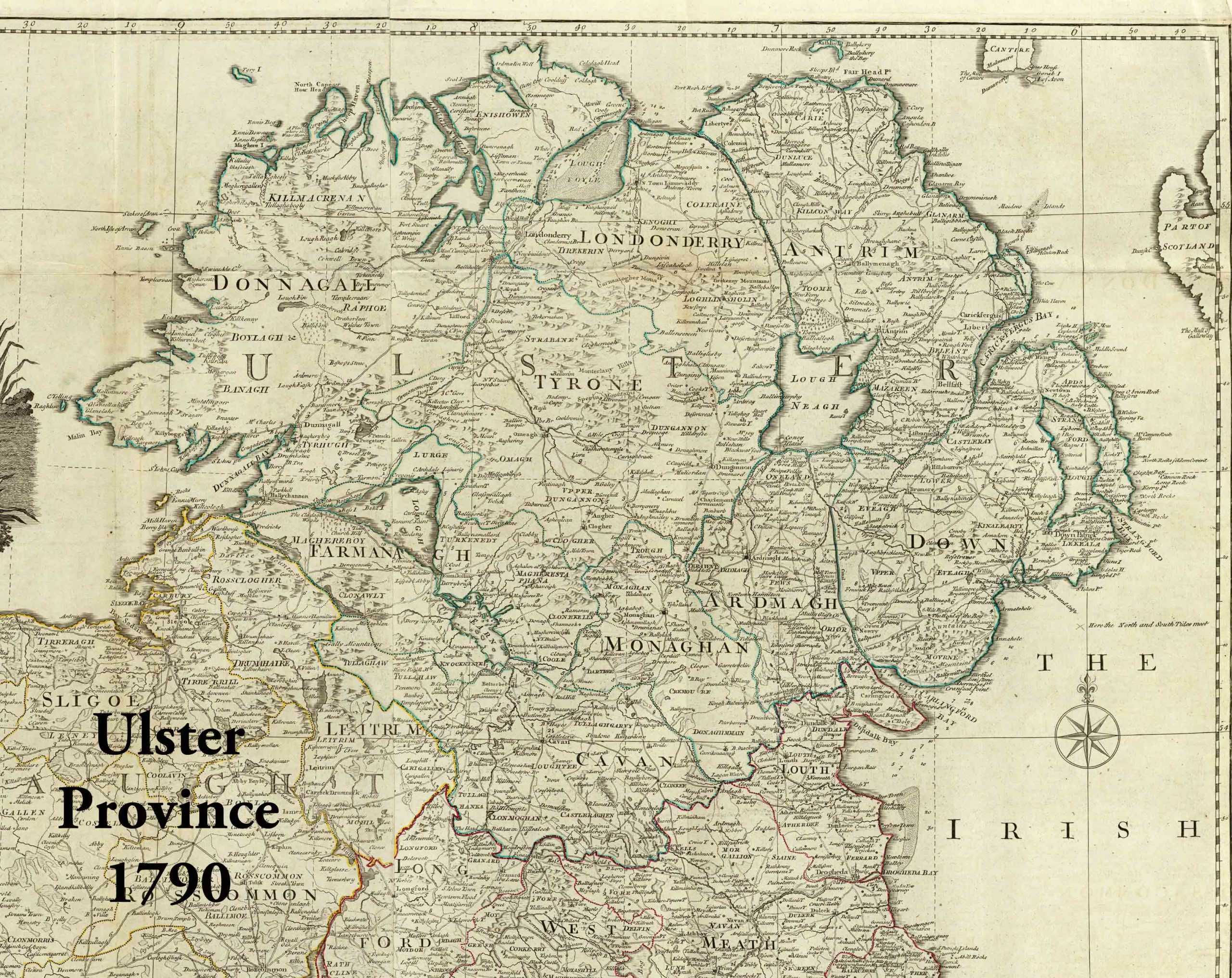
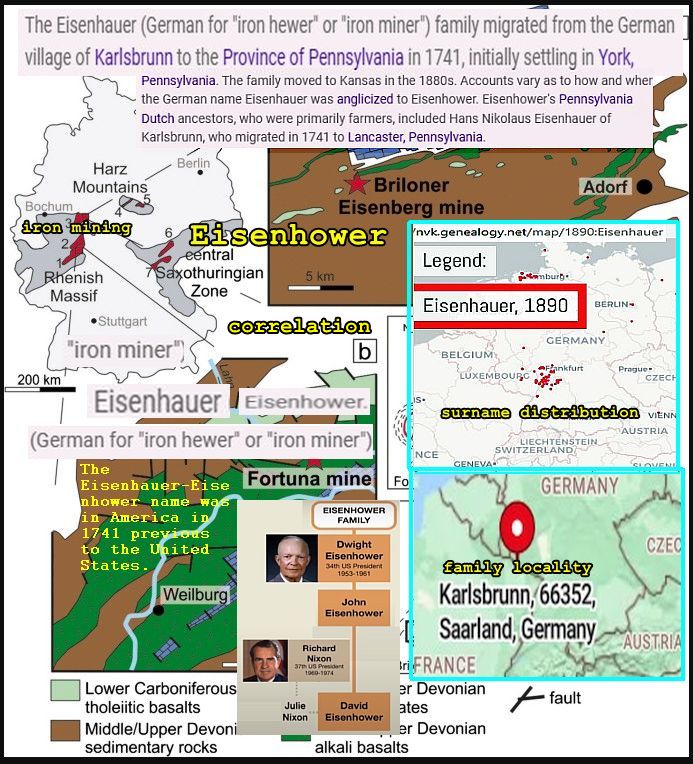
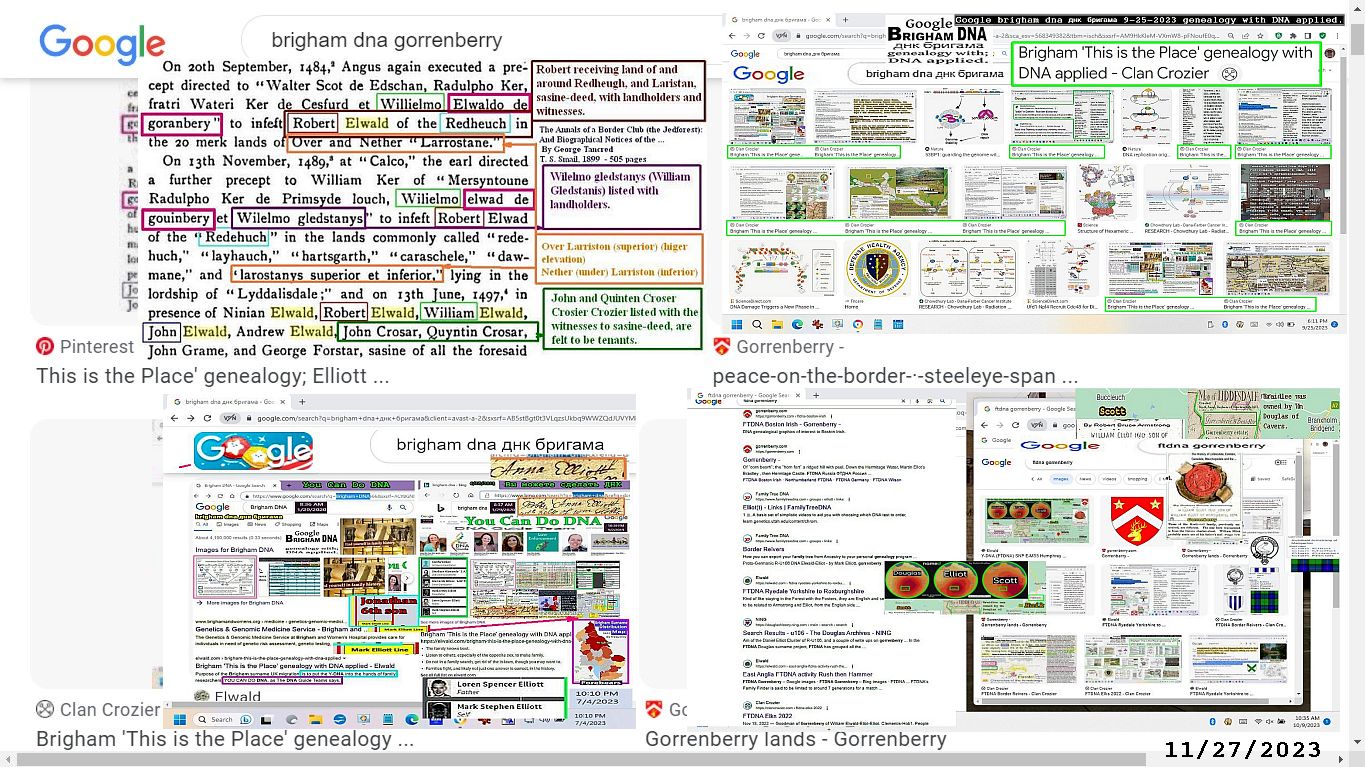

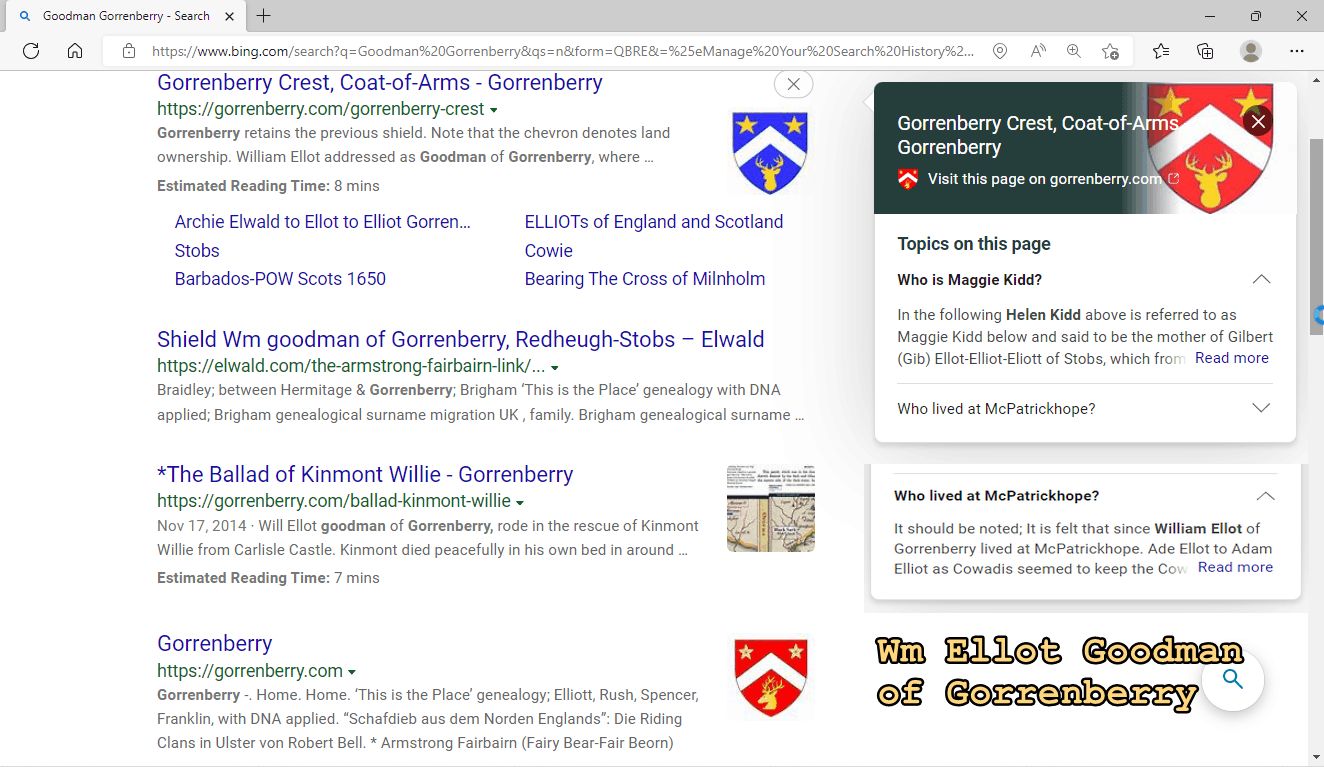
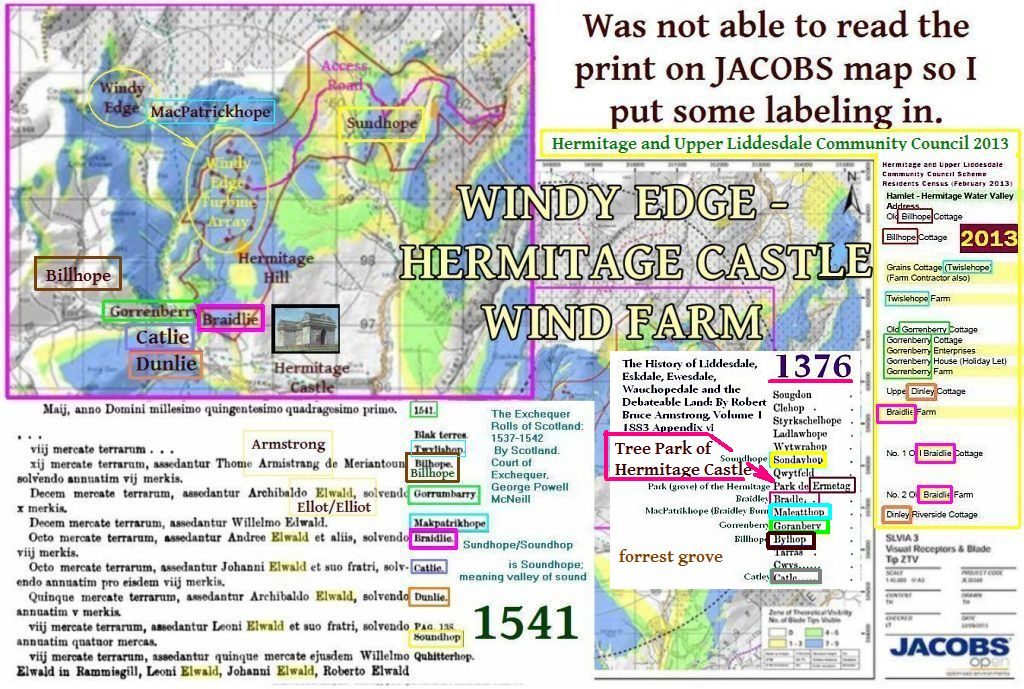
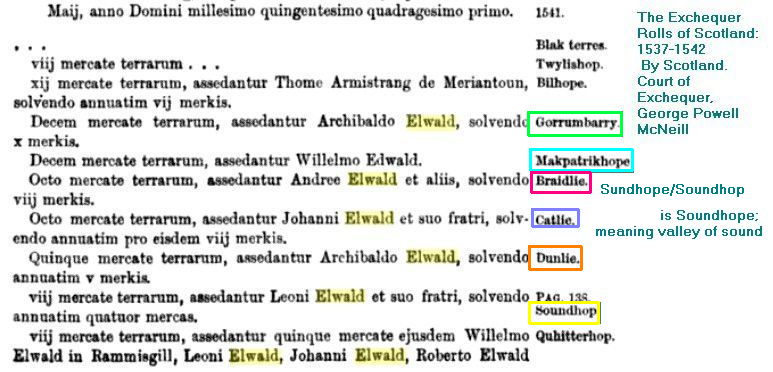
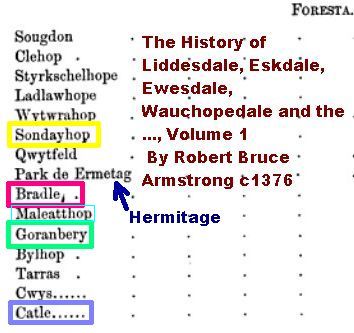
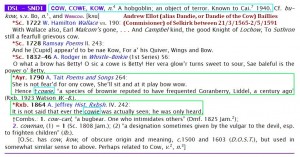
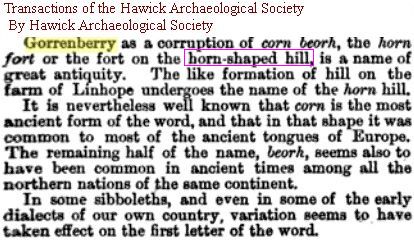
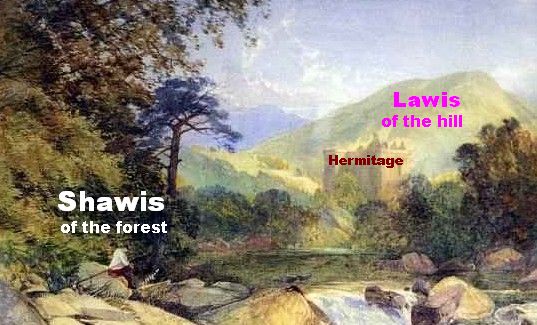
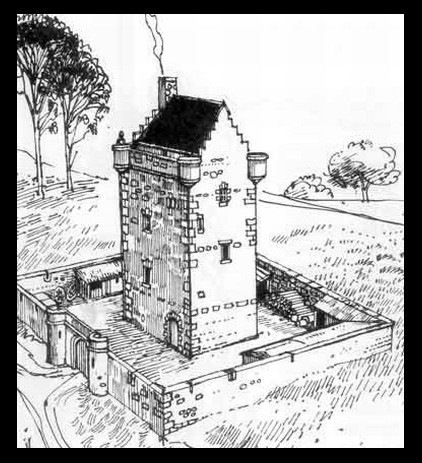
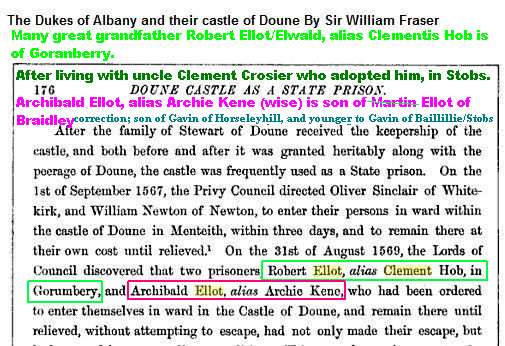
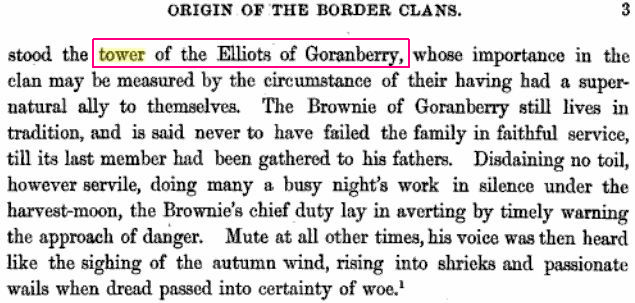
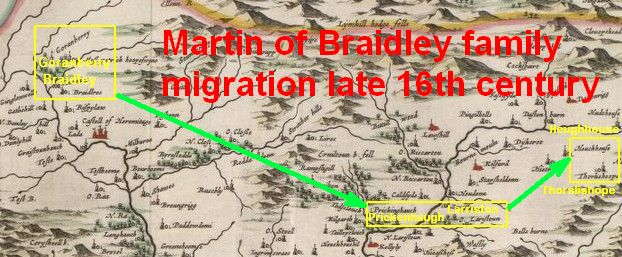
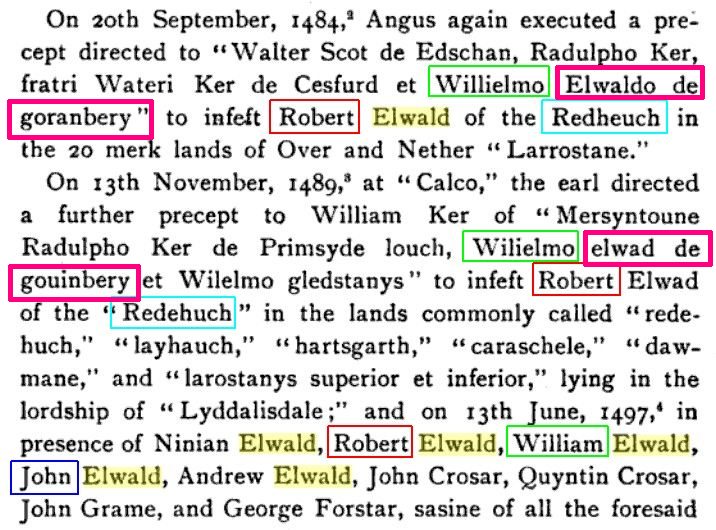
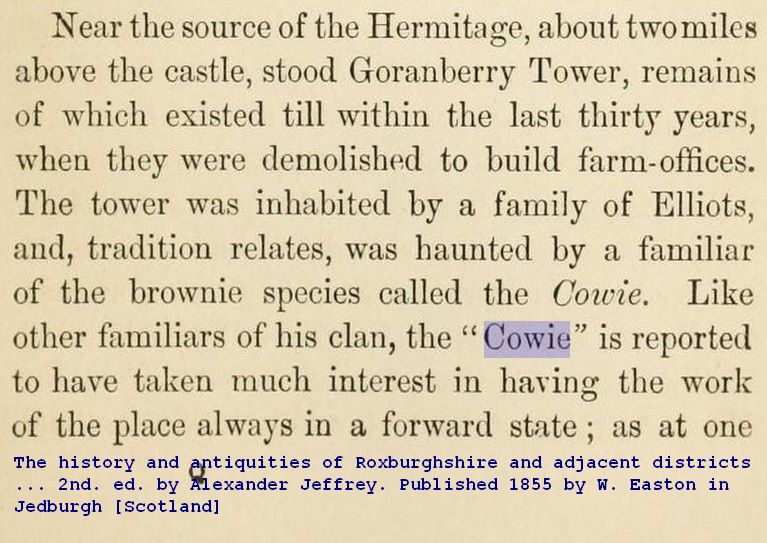
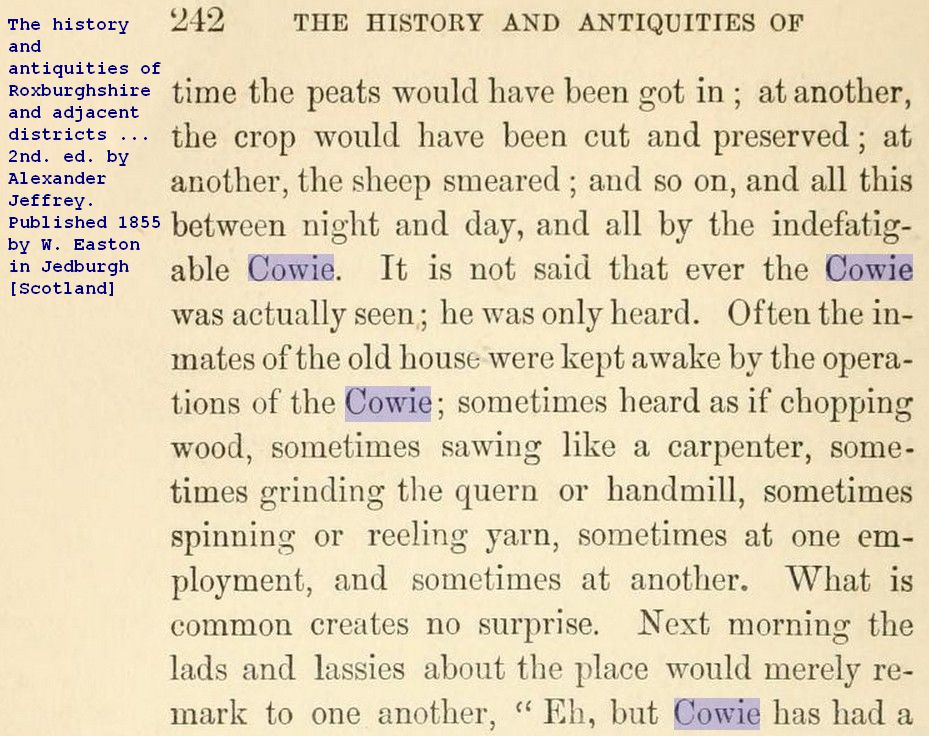
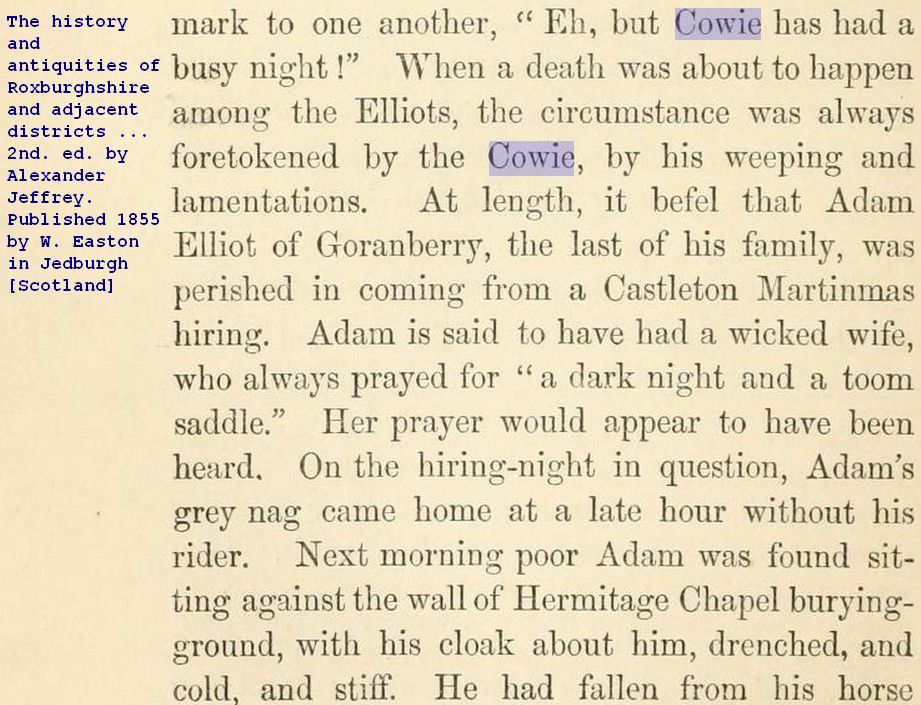
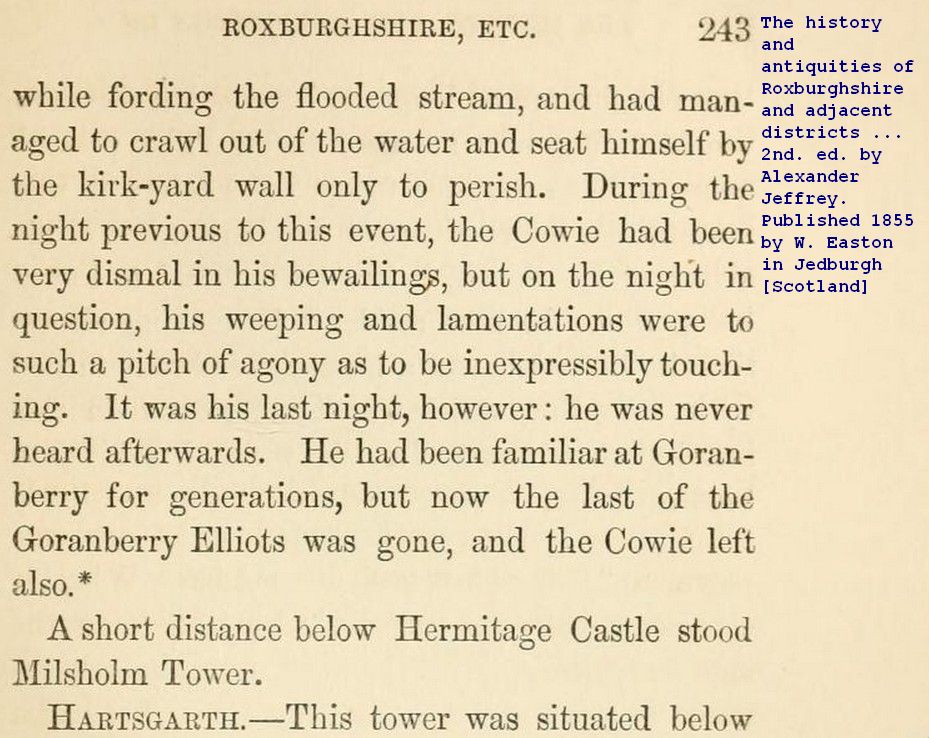
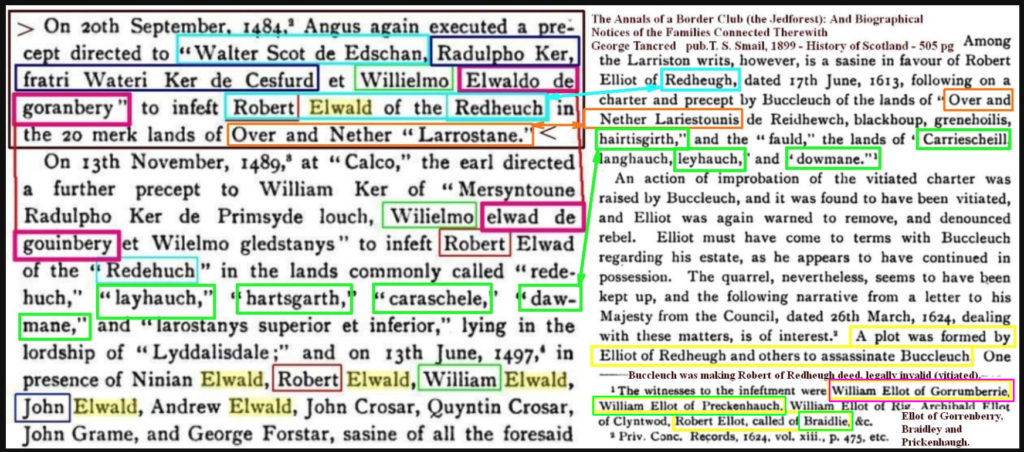
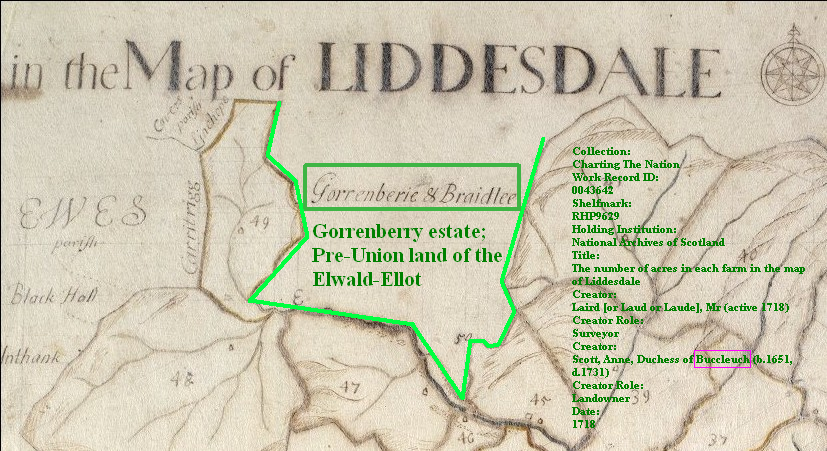
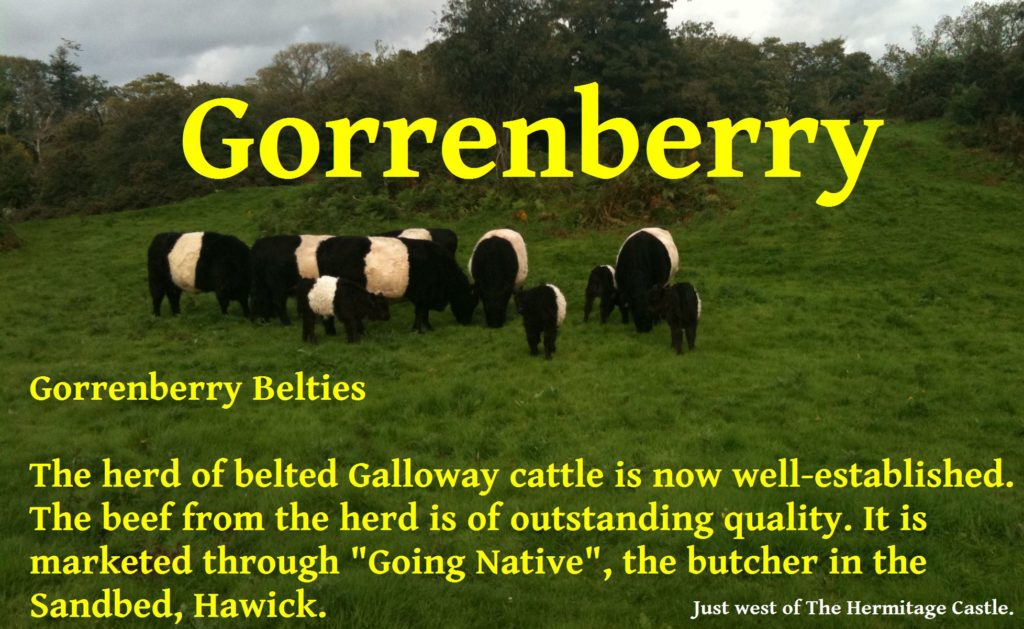
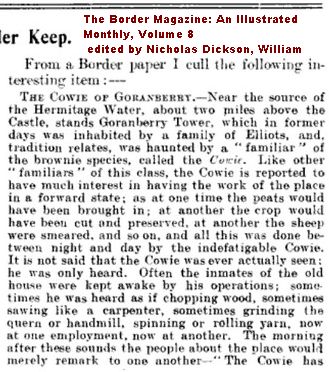
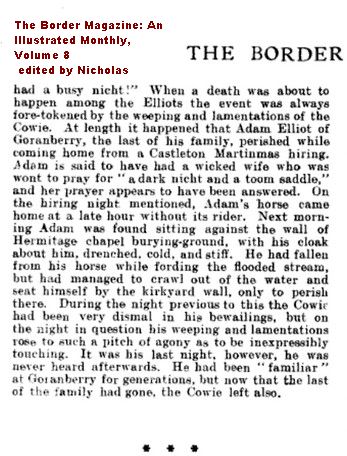
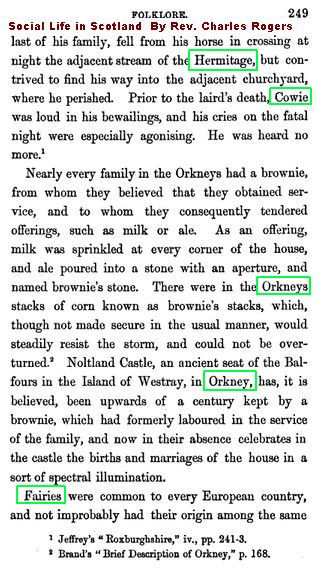
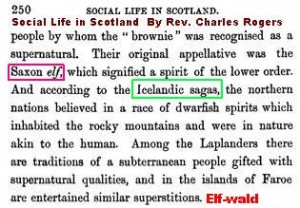
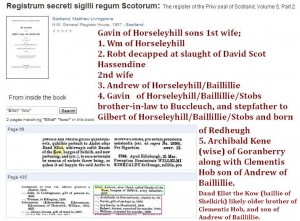
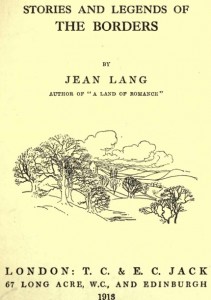
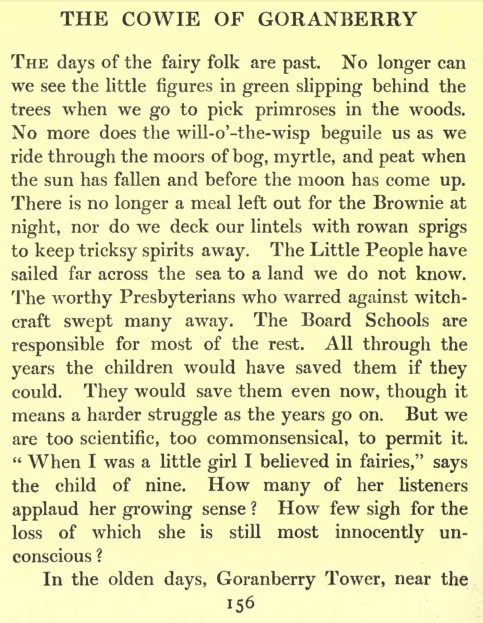
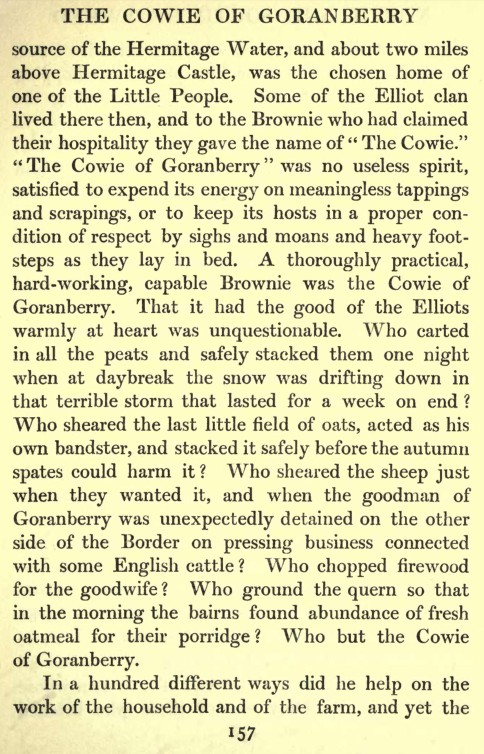
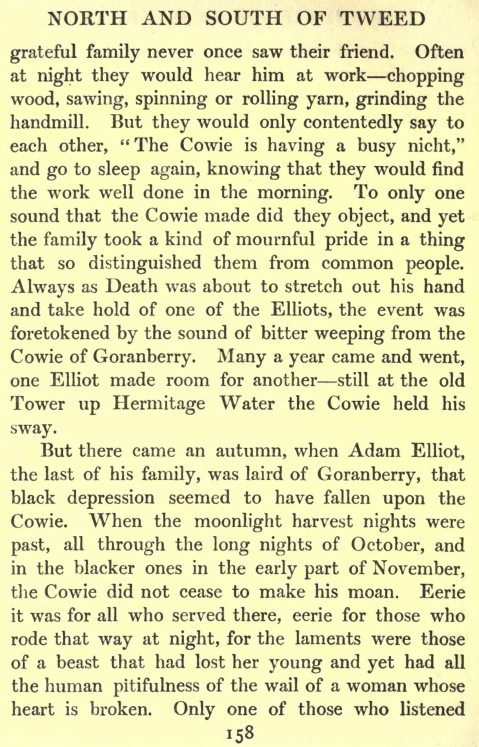
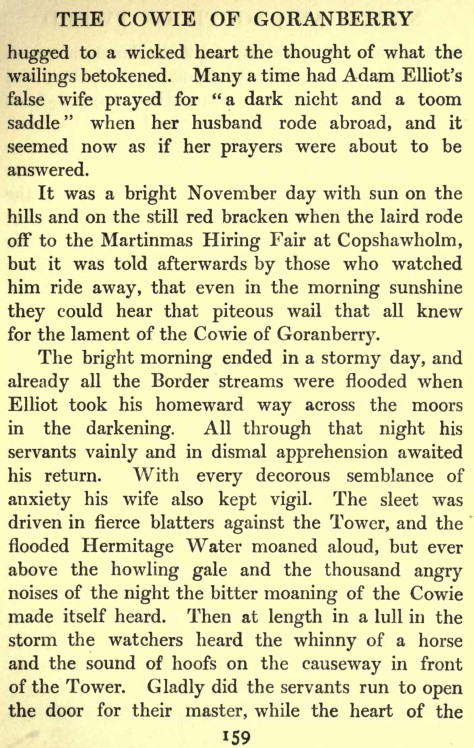
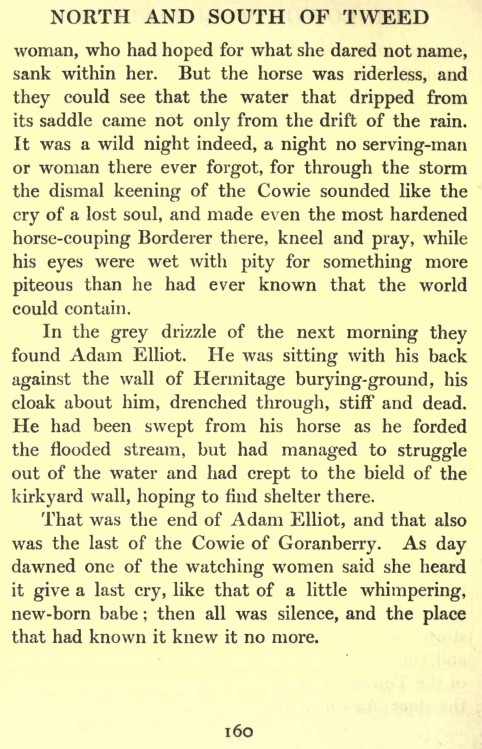
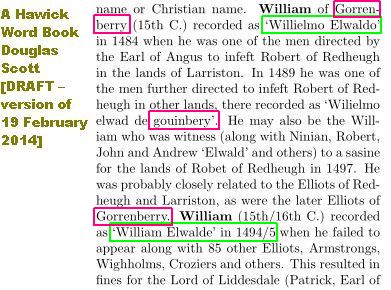
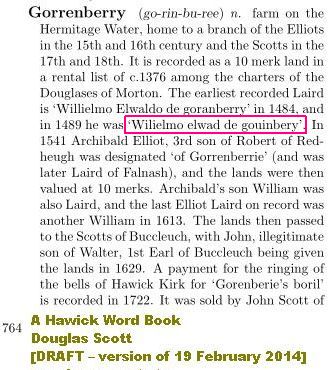
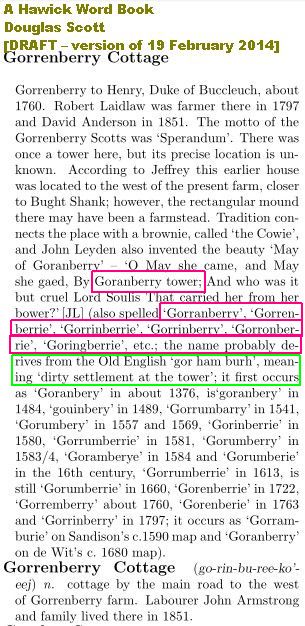
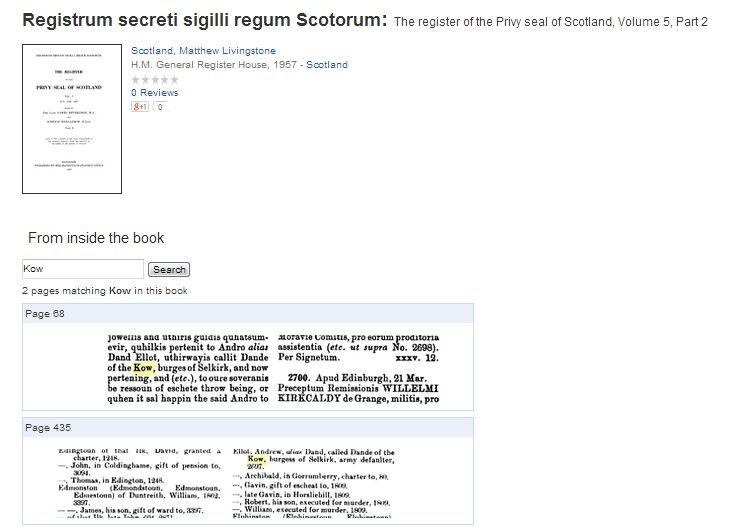
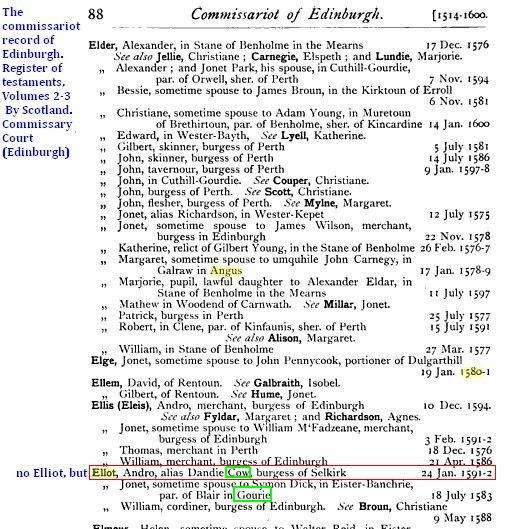
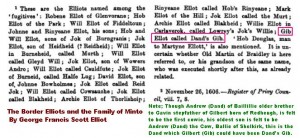


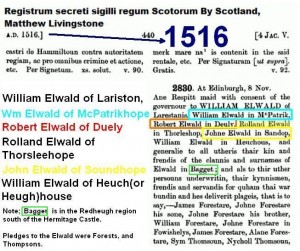
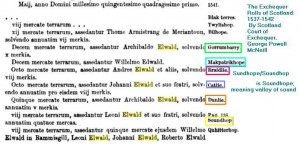
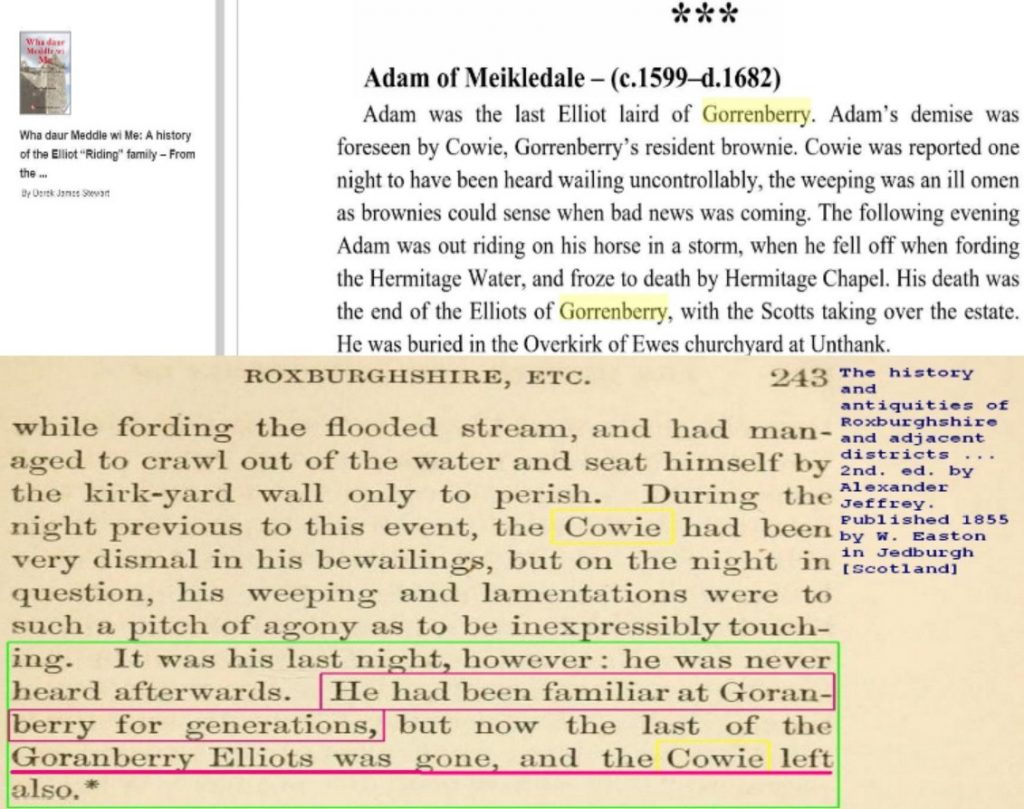
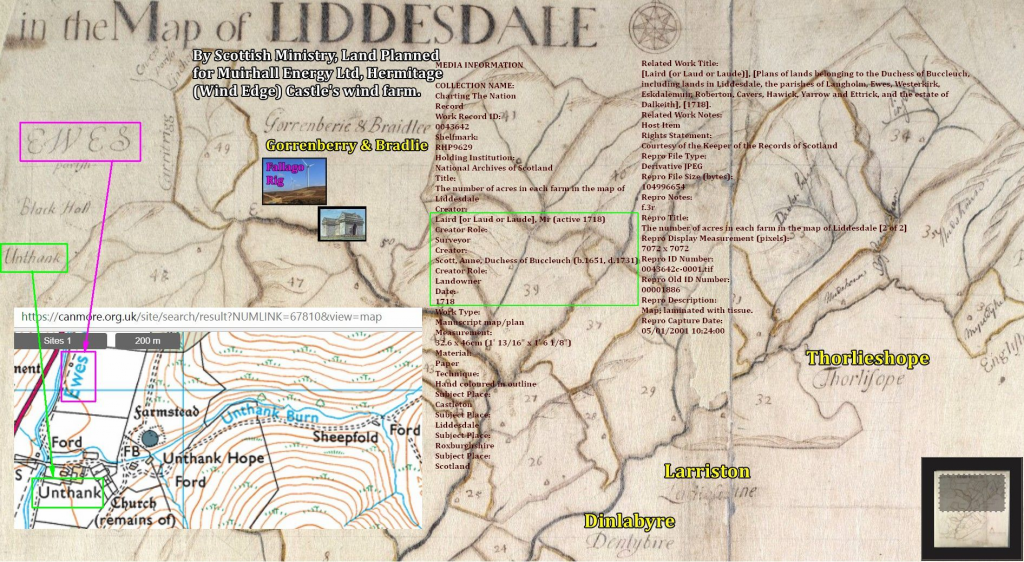
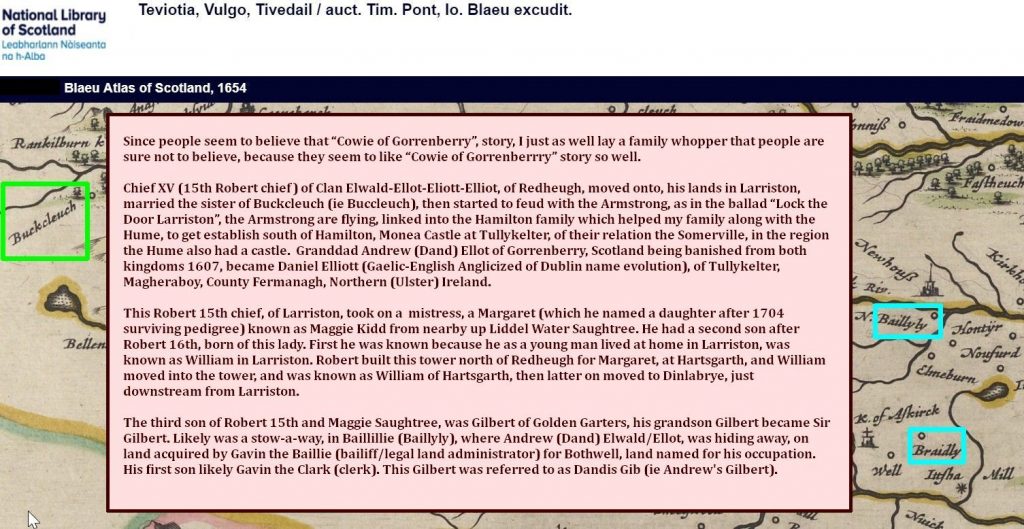
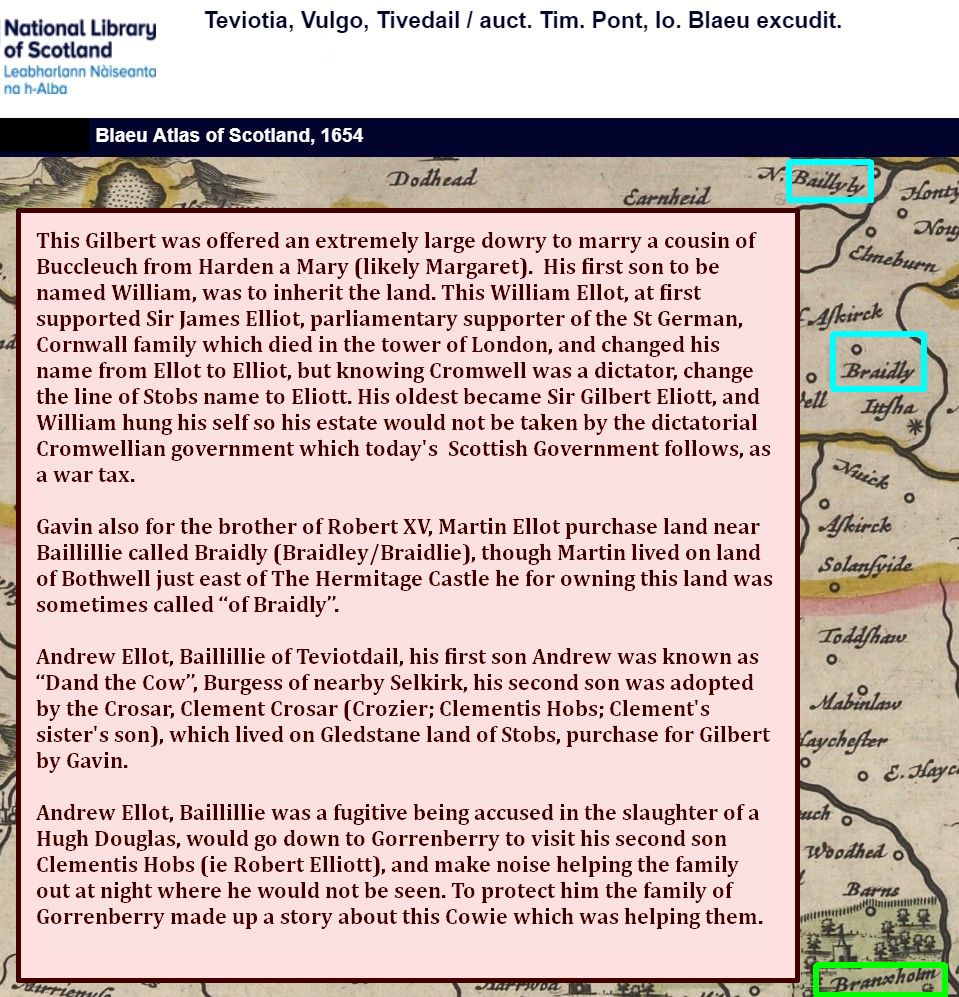
Leave a Reply